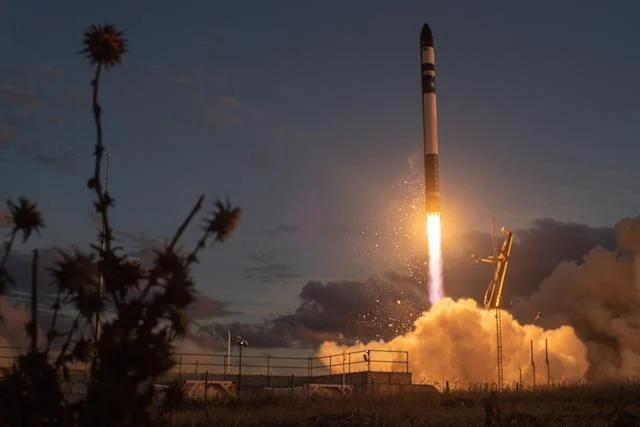
Varda Space Lands Hypersonic Research Capsule, Rocket Lab Eyes Global Expansion
The space industry is buzzing with activity as Varda Space Industries successfully recovered its third reentry capsule, while Rocket Lab USA sets sights on global expansion. These developments signal advancements in hypersonic research and the commercialization of space capabilities.
Varda's Hypersonic Milestone
Varda Space Industries, a California-based firm specializing in in-orbit manufacturing, achieved a significant milestone on May 13 with the successful landing of its W-3 reentry capsule at the Koonibba Test Range in South Australia. This mission, funded by the Air Force Research Laboratory (AFRL), aimed to gather crucial data for military hypersonic research.

Launched on March 14 aboard a Rocket Lab Pioneer satellite, the W-3 capsule carried an inertial measurement unit (IMU) designed to navigate without GPS, even in extreme conditions. According to Varda, the capsule reentered Earth’s atmosphere at speeds exceeding Mach 25, providing invaluable data on system performance in hypersonic environments.
Dave McFarland, Varda’s Vice President of Hypersonic and Reentry Test, emphasized the mission's importance, stating that it "will provide unprecedented data to advance next-generation space and defense capabilities and continue to provide hypersonic environments to the reentry test community."
The collaboration between Varda, AFRL, and NASA underscores the growing recognition of hypersonic flight as a critical area for research and development. Varda’s success has enabled it to secure significant funding, including a $48 million contract for continued testing of military payload reentry through the Prometheus program.
Rocket Lab's Global Ambitions
Meanwhile, Rocket Lab USA is charting a course for international expansion. Despite recent earnings that disappointed investors, the company's strategic moves suggest a confident outlook. One key aspect of this strategy involves acquiring a European subsidiary, a move poised to bolster its presence and competitiveness on the Continent.
While Rocket Lab's first-quarter earnings report revealed a loss of $0.12 per share, slightly worse than expected, sales exceeded expectations at $122.6 million. The company, however, did face some investor concerns, primarily due to a lack of clarity on the launch schedule for the new Neutron rocket.
CEO Peter Beck's cautious approach to setting deadlines for the Neutron rocket launch, while understandable, seemed to leave investors wanting more. However, the focus on Neutron seems to be paying off, with the company seemingly “pausing” efforts to make its existing Electron small rockets reusable.
What's Next?
Both Varda Space Industries and Rocket Lab USA are pushing the boundaries of space technology. Varda's successful hypersonic research missions pave the way for advancements in defense and commercial applications, while Rocket Lab's global expansion signals a growing competitiveness in the small rocket launch market.
What are your thoughts on the future of commercial space exploration and the role of companies like Varda and Rocket Lab? Share your opinions in the comments below!